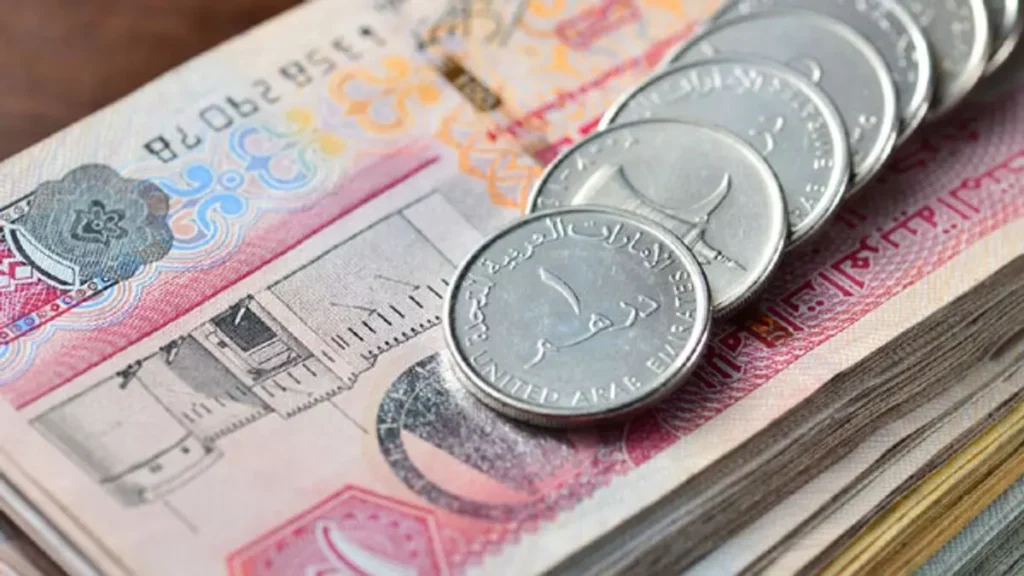The United Arab Emirates is one of the most attractive countries for investors, thanks to its technologically advanced cities, favorable business conditions, and strategic geographical location. Over the past 50 years, the country has rapidly developed, gaining increasing economic independence from its oil reserves. However, alongside the influx of a large number of foreigners, money laundering in the UAE is not uncommon. The country constantly faces the risk of organizations attempting to legitimize funds obtained through illegal or criminal means.
To maintain its reputation as a safe and idyllic place to live, the UAE has established a robust AML (Anti-Money Laundering) and CFT (Counter Financing of Terrorism) regulatory framework, reinforced by participation in FATF. In this material, experts from Dynasty Business Adviser explore what is money laundering in UAE, the legal foundations of AML and the types of activities subject to these regulations.
History of anti-money laundering efforts

Let’s first examine what money laundering is in the UAE and why it is important to combat it. Money laundering is a fraudulent activity aimed at converting funds obtained illegally into legitimate assets. For example, when a criminal receives payment for a terrorist act, then deposits the funds in a bank or purchases a business. Such actions at the very least undermine trust in banks and create unfair competition. At worst, they contribute to the growth of criminal activities and can pose severe dangers, such as organizing terrorist acts or creating weapons of mass destruction.
In July 1989, the Financial Action Task Force (FATF) was established in Paris with the participation of the G7. The FATF developed a set of recommendations for countries seeking tools to ensure financial security. By 1990, the European Union had already introduced the Anti-Money Laundering Directive, which has been continually refined over time.
The advantages of this directive are that it:
- includes a list of predicate offenses for financial institutions;
- promotes transparency in financial transactions by requiring banks and other financial organizations to verify the identity of account holders;
- strengthens the control of high-risk transactions, including operations with offshore zones;
- enhances cooperation between countries through information exchange with their banks and law enforcement agencies.
Today, more than 200 countries have introduced measures to counter terrorism. The UAE adopted Federal Law No. 4 and established the AMLSCU as early as 2002. Later, in 2010, the UAE formed the National Anti-Money Laundering Committee (NAMLC). Through this committee, the state not only conducts effective work but also exchanges information with other countries. Additionally, on August 22, 2021, a dedicated court was established in Dubai to exclusively handle money laundering cases in the UAE. The government has also developed a series of AML/CFT laws and regulations, which outline guidelines and best practices for effectively combating financial crimes.
Legal framework: AML law UAE
Key laws regulating AML/CFT:
- Federal Law No. 7 of 2014 on combating terrorism. This law includes several key measures: enhanced monitoring and checks on transactions, the ability for authorities to freeze assets, notifying law enforcement about suspicious transactions, and international cooperation to coordinate efforts in combating terrorism.
- Federal Law No. 20 of 2018 (supplemented by Federal Decree No. 26 of 2021) on counteracting the legalization of criminal proceeds, financing of terrorism, and sponsoring of illegal organizations. This law regulates customer due diligence (CDD) using software and the preparation of information for data sharing with the Financial Intelligence Unit (FIU).
- Cabinet Resolution No. 10 of 2019. (supplemented by Decree No. 24 in 2022) on fulfilling obligations in the fight against money laundering, financing of terrorism, and illegal organizations. This resolution outlines due diligence measures and lists the requirements for organizations responsible for monitoring financial transactions.
- Central Bank regulations. The Central Bank has issued principles for CDD (Customer Due Diligence) and STR (Suspicious Transaction Reporting), as well as guidelines on risk management in financial institutions.
In addition to these laws, a series of legislative acts were adopted in 2020-2021, which:
- organize procedures for identifying beneficial owners;
- establish rules and penalties for violators of the provisions;
- define who can be included on the terrorist list;
- regulate compliance with UN Security Council directives.
Who falls under regulatory oversight

The following categories of organizations and individuals are subject to UAE’s Anti-Money Laundering (AML) and Counter Financing of Terrorism (CFT) laws:
- Financial institutions: banks, cryptocurrency exchanges, insurance companies, leasing companies, financial brokers, and dealers.
- Independent professionals in finance and law: lawyers, notaries, accountants, dealers, jewelers, and real estate agents.
- Legal entities providing legal and financial services: consulting and auditing firms, real estate agencies, trusts.
- Exchange points: currency exchange bureaus, companies involved in international money transfers.
- Organizations in free economic zones, engaged in commercial activity: such as the Dubai International Financial Centre (DIFC) and Abu Dhabi Global Market (ADGM).
The above-mentioned legal entities and individuals are required to implement measures for client identification (KYC), transaction monitoring, reporting suspicious activities, and complying with other requirements established by UAE legislation concerning AML/CFT.
How and which UAE government agencies participate in AML regulations
- FIU (Financial Intelligence Unit) — the FIU is responsible for collecting, analyzing, and transmitting information about suspicious transactions to law enforcement agencies and foreign organizations as part of international cooperation.
- Central Bank of the UAE (CBUAE) in August 2020, the CBUAE established a dedicated department for overseeing anti-money laundering (AML) and counter-financing of terrorism (CFT) efforts. This department conducts audits of financial institutions, develops and updates AML/CFT regulations, and continuously optimizes them to reflect current realities.
- Ministry of Economy (MoE) and Ministry of Justice (MoJ) these ministries oversee compliance with AML regulations and develop and disseminate AML/CFT guidelines for organizations in the UAE to raise awareness among professionals.
- National Anti-Money Laundering and Combating Financing of Terrorism Committee (NAMLC) the NAMLC develops national strategies and policies in the field of AML/CFT, coordinates the efforts of various government agencies and the private sector, and assesses risks and vulnerabilities within the UAE’s financial system.
- Authorities of Free Economic Zones these authorities develop and implement their own AML/CFT regulations. They also supervise companies within the Free Zones to ensure compliance with international standards.
- Specialized Court in Dubai this court handles cases related to financial crimes.
Risks of money laundering UAE

Given that the United Arab Emirates is a global trade hub and an attractive investment, destination, money laundering risks cannot be excluded. These risks are exacerbated by:
- Geographical location. The UAE’s strategic position allows for quick access to any part of the world. This can be exploited by illegal groups to move swiftly between East and West. The presence of free and offshore zones further increases the risk of disguising money laundering as legitimate trade deals.
- Real estate purchases by foreigners. This sector is highly vulnerable to exploitation by fraudsters. Brokers are therefore required to report suspicious transactions. For instance, if a property transaction is paid for with cryptocurrency, the buyer must provide proof of the funds’ origin.
- Influx of foreign investments. While foreign investments are vital to the country, there is a risk that criminals may invest in front companies to launder illicit profits. This is why the UAE government mandates disclosure of the beneficial owner when opening a business branch in the country.
- Financial sector. Banks and other financial institutions can also be used by criminals to legitimize their funds. The AML policy UAE focuses on rigorous customer due diligence and strict monitoring of suspicious transactions, especially in cases of large money transfers. In such instances, banks usually require confirmation of the source of income.
- Cash transactions. Unfortunately, it is difficult to trace the origin of large cash amounts. However, when attempts are made to digitize these funds, banks have the opportunity to question and potentially block illegal transactions. There are also ATM withdrawal limits in place.
How to avoid AML regulation
It is impossible to avoid AML (Anti-Money Laundering) regulation in the UAE if your company is engaged in financial, legal, or brokerage activities. To minimize the risks of falling under regulatory scrutiny, it is advisable to follow some general recommendations:
- Conduct audits. Independent audits for AML compliance help financial organizations improve their ratings. These audits also help identify areas of high and low risk for fraudulent activities, which can be useful for developing a strategy to interact with regulatory bodies.
- Compliance with KYC requirements. Adhering to KYC (Know Your Customer) principles helps avoid the risk of working with suspicious individuals, thereby reducing the chance of illegal transactions passing through the system.
- AML monitoring. New types of financial crimes emerge every year. Therefore, the government requires companies to be highly vigilant and to develop their own strategies for tracking fraudulent transactions. These programs must meet the requirements of the National Bank.
- AML management. The strict AML policy in the UAE requires clear adherence to program implementation. Therefore, each institution must appoint responsible persons to oversee the monitoring and reporting processes.
- Consultations with legal and financial experts. Regular consultations with legal and financial experts help companies stay informed about legislative changes and avoid unintentional violations of regulatory requirements.
It is important to remember that failure to comply with AML/CFT laws can lead to serious legal consequences, including blacklisting, fines, license revocation, asset confiscation, and imprisonment.
What to do if your company falls under AML/CFT regulation

The most important thing is to successfully pass the audit and convince regulatory authorities that you meet the necessary requirements. To start, we recommend checking your company’s compliance with AML regulations using the following checklist:
- Are you registered on the goALM portal?
- Do you have competent specialists on staff who ensure AML/CFT compliance?
- Have you conducted an independent risk assessment?
- Have you developed internal policies with clear guidelines for continuous monitoring of operations and actions to be taken in case of violations?
- If you operate in a high-risk sector, have you implemented enhanced transaction monitoring methods?
- Do you report all suspicious activities and record them on the goAML portal?
- Do you keep all AML/CFT records and reports for at least five years?
Make every effort to cooperate with authorities by providing all necessary information. If you encounter difficulties or need an external assessment, consider ordering a legal consultation or an external audit. The experts at Dynasty Business Adviser are ready to assist you with these and other matters:
- conducting independent assessments;
- identifying high-risk areas for money laundering;
- developing strategies and internal AML/CFT policies that comply with National Bank requirements;
- providing consulting assistance in recording violations and maintaining reports on the goAML portal;
- assisting with staff training on AML/CFT issues;
- helping you prepare for legal proceedings, if necessary.
Thanks to the high qualifications of our experts, you can avoid unintentional violations of the law and protect your business and company reputation.
The country’s future prospects in AML/CFT development
AML/CFT regulation is becoming increasingly complex. The rules are constantly changing. For example, 30 years ago, there were no cryptocurrencies, electronic payments, or instant transactions. Now, AML/CFT agencies are continuously facing new challenges and the need to adapt to changing conditions.
The UAE government is committed to implementing necessary reforms and promoting international security standards.Both local and foreign businesses need to understand this commitment, not only by adhering to anti-money laundering rules but also by fostering an internal AML culture, continually monitoring legal changes, and raising awareness among their employees. By reducing the risks posed by terrorists, cybercriminals, and fraudsters, companies can avoid fines, reputational damage, and ultimately contribute to creating a safer environment.









